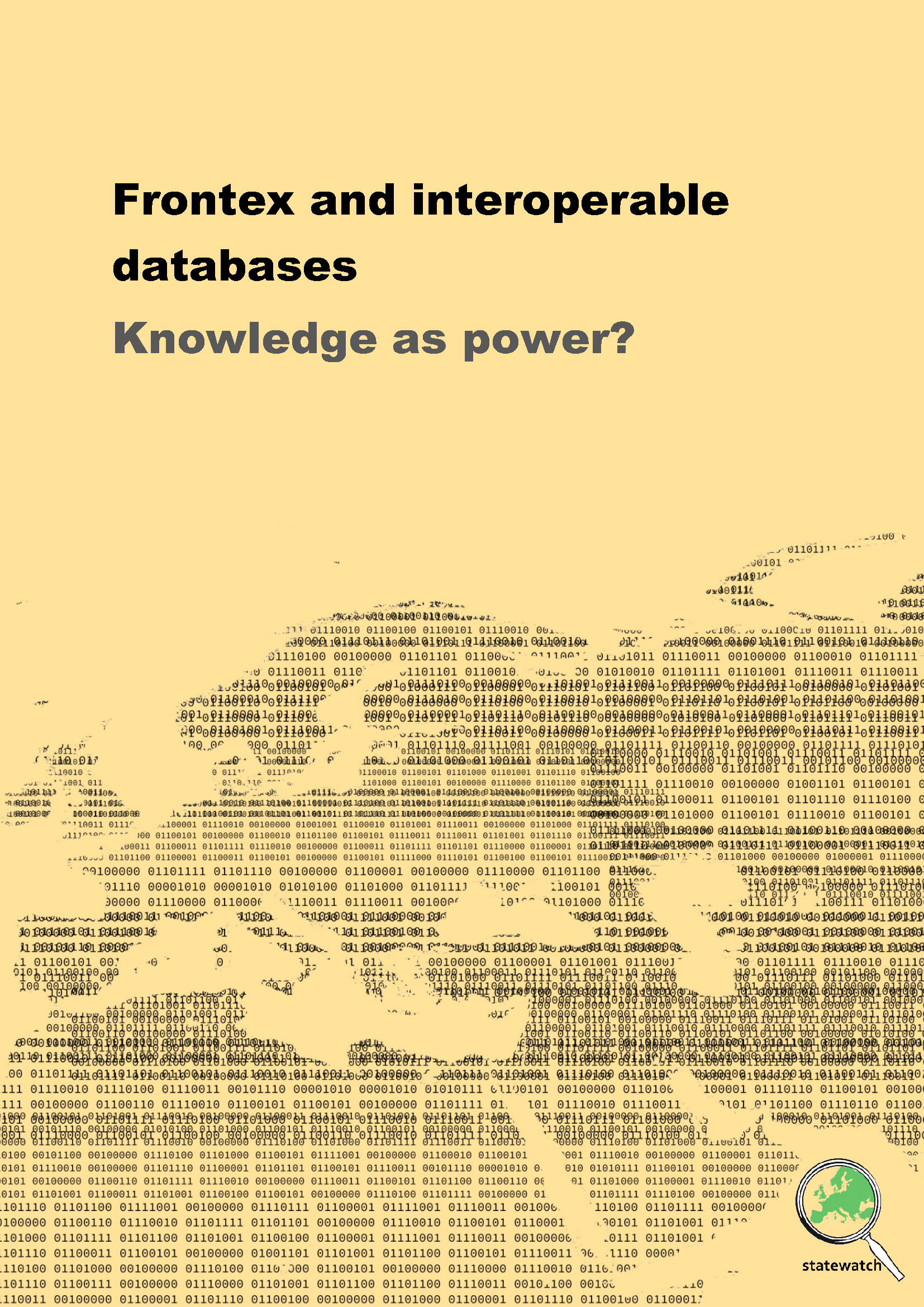Frontex and interoperable databases: knowledge as power?
The EU’s border agency, Frontex, will be able to access vast quantities of data once the EU’s ‘interoperable’ policing and migration databases are fully operational. This briefing considers the agency’s use of data from two different perspectives – operational and statistical – and provides an overview of the agency’s role in the EU’s emerging “travel intelligence” architecture. It is aimed at informing understanding, analysis and critique of the agency and its role, with a view to making it possible to better understand, engage with and challenge future developments in this area.
 In 2016 European Commission framed a series of terrorist attacks and the arrival of over one million refugees as security threats that required the creation of a comprehensive digital identity architecture for non-EU nationals, under the moniker of ‘interoperability’.
In 2016 European Commission framed a series of terrorist attacks and the arrival of over one million refugees as security threats that required the creation of a comprehensive digital identity architecture for non-EU nationals, under the moniker of ‘interoperability’.
This was to be achieved by interconnecting existing databases and setting up new ones, to close “information gaps” and “blind spots” – a framing that justifies the serial expansion of surveillance and data collection schemes.
Nearly seven years later, those plans are in full swing and new data sources are continually being added, demonstrating that the existing architecture is not an end in itself but a building block for more comprehensive systems of surveillance and control.
This briefing examines Frontex's access to the EU’s interoperable databases. It explains the types of data those systems hold; when, how and why Frontex is able to access them, and what the agency can do with the data.
The briefing considers the agency’s use of data from two different perspectives – operational and statistical – and provides an overview of the agency’s role in the EU’s emerging “travel intelligence” architecture. It is aimed at informing understanding, analysis and critique of the agency and its role, with a view to making it possible to better understand, engage with and challenge future developments in this area.
- Summary: EU: Interoperable migration and police databases: a data trove for Frontex
- Full report: Frontex and interoperable databases: Knowledge as power? (pdf, or in plain-text)
You can also view our interactive map on EU agencies and interoperable databases, which will shortly be updated with new information from this briefing.
Spotted an error? If you've spotted a problem with this page, just click once to let us know.